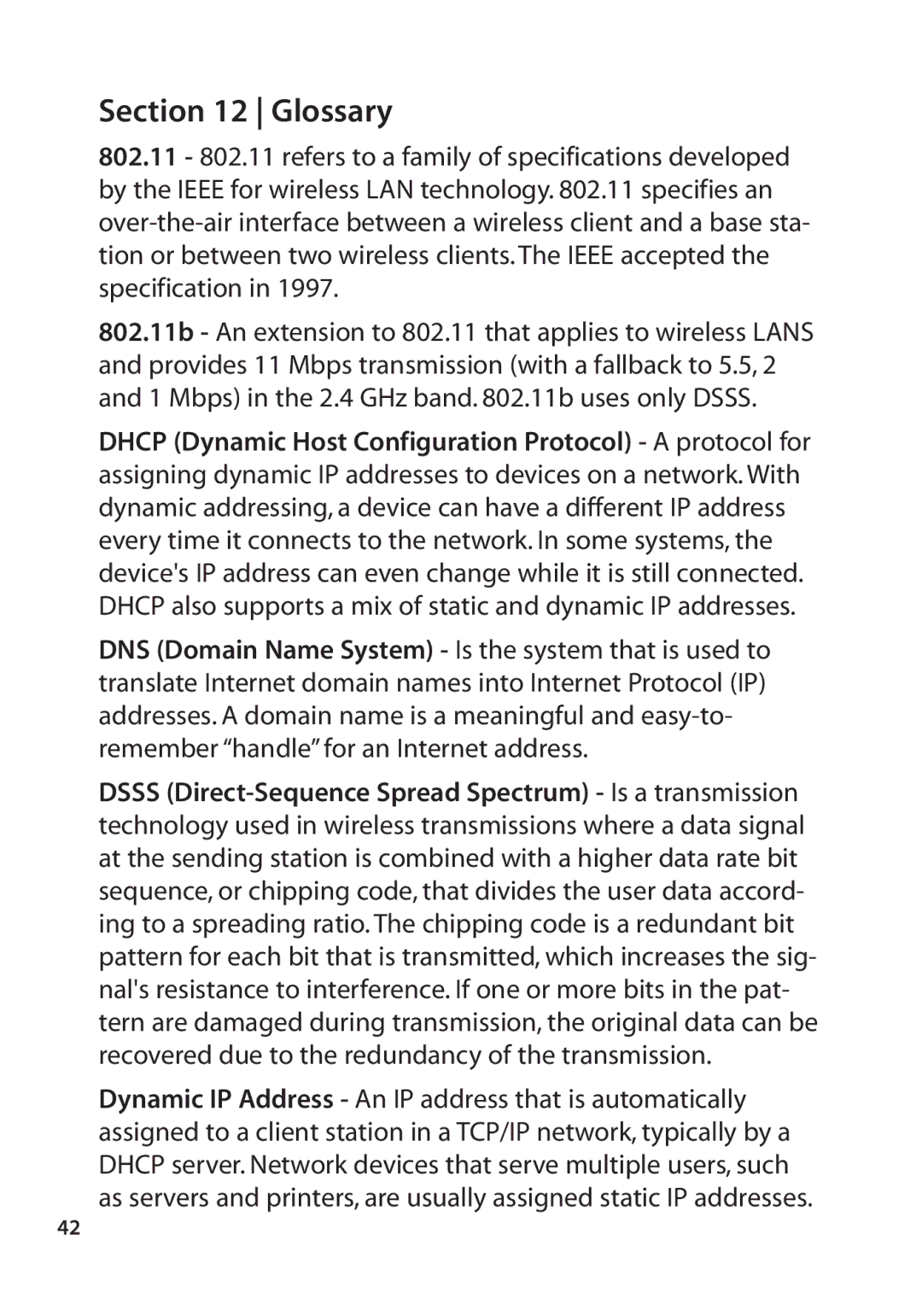Section 12 Glossary
802.11- 802.11 refers to a family of specifications developed by the IEEE for wireless LAN technology. 802.11 specifies an
802.11b - An extension to 802.11 that applies to wireless LANS and provides 11 Mbps transmission (with a fallback to 5.5, 2 and 1 Mbps) in the 2.4 GHz band. 802.11b uses only DSSS.
DHCP (Dynamic Host Configuration Protocol) - A protocol for assigning dynamic IP addresses to devices on a network. With dynamic addressing, a device can have a different IP address every time it connects to the network. In some systems, the device's IP address can even change while it is still connected. DHCP also supports a mix of static and dynamic IP addresses.
DNS (Domain Name System) - Is the system that is used to translate Internet domain names into Internet Protocol (IP) addresses. A domain name is a meaningful and
DSSS
Dynamic IP Address - An IP address that is automatically assigned to a client station in a TCP/IP network, typically by a DHCP server. Network devices that serve multiple users, such as servers and printers, are usually assigned static IP addresses.
42
